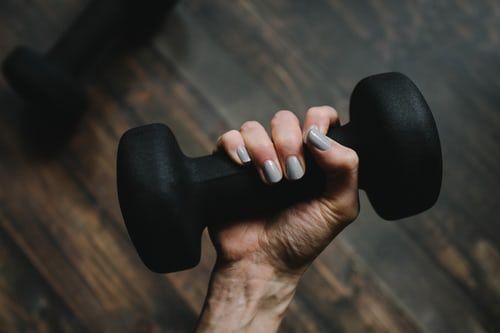Moderation Muscles
My quest for new and better coping mechanisms to replace my drinking has led me to taking up regular exercise. It’s known to be mood-altering, so much so, that it’s one of the few proven treatments for anxiety and depression. I can’t help but see some similarity in my workouts and my moderation.
Modern exercise is based on the principles of progressive resistance. We each have our own blend of genetic gifts and challenges, our experience (or hilarious lack thereof), and other factors that affect our strength and skill in sports. To improve, we need to give ourselves challenges that we can adapt to and overcome. There’s a few handy tidbits of proven knowledge we can apply to drinking:
- We have to tailor our initial plan to be realistic of our current capabilities.
A beginner weightlifter will not benefit from the 40 hour/week training program of an experienced lifter. In fact, they will probably just hurt themselves.
Being realistic about our starting place and making a program that takes it into account is a key to success. In drinking, I threw myself into abstaining several times before I realized that I needed to build my readiness to take on the challenge. I had to taper how much I was drinking, if only to prove to myself that yes, I did have some kind of control over my drinking. I succeeded at my first 30 days sober, but went right back to my old habits. I needed to make more internal preparations to be successful – specifically, I had to deal with my anxiety and come up with ways to handle it instead of drinking. The result was that I white-knuckled my way through the second one, and my new habits stuck. A couple of years of therapy later, I now complete my 30 days sober every January (as part of Dryuary) without much effort, it’s just a check-in for how I’m doing with my drinking habits and a chance to re-set my tolerance and keep myself honest. Same 30 days. Different preparation and different results each time.
- We adapt the fastest to the smallest incremental challenge.
Taking on overwhelming challenges can lead to spectacular failure. In the gym, we respond best by adaptation to new stimuli, and it’s easiest to respond to smaller changes than large ones. For example, if you can lift a 100 pound weight and you want to lift 120 pounds, you might add 1 pound each week so force your muscles to adapt. You’ll add that pound 20 times to get there, and at times that may seem painfully slow. If you’re patient and consistent though, you will be able to lift weights you couldn’t handle mere months before. But here’s the kicker – if you make no progress though – add half a pound. Smaller changes are less stressful, and sometimes are within our adaptation limits where larger changes lead us to failure.
Now, that’s not an invitation to never push yourself, but to be realistic about partial successes and keep trying for small improvements. If you feel like you can’t make progress at, say, limiting your drinking in how many nights a week you drink, consider some interim goals that are more modest. Or try switching to focus on how much you drink instead of how often. Alternately, if you have an overly complicated plan that you can’t keep, a single simple rule can be the easiest change to make – yes, even if that rule is ‘no drinking for 30 days.’ What’s easiest is going to depend on where you’re starting from, and it will vary for everyone.
- Progressive resistance is how you keep making progress.
When you reach your goal, celebrate your successes and keep slowly progressing forward. Things that you maybe thought impossible at one point can come into focus later on, and you suddenly see them as new goals. Don’t limit yourself! Exercise is very well-studied and you have consistent advice to follow, which is sometimes missing when it comes to moderation. For myself, the same principles apply, namely – when I’ve done something consistently, over a long time, and it’s starting to feel easy I can confidently move the goalposts a bit and test new limits. Knowing this has helped me accept certain limits along the way, like never having certain kinds of alcohol that were linked to almost all my over-drinking, and has also opened me up to the prospect of abstaining permanently to improve my health. Both of those possibilities seemed out of reach when I began, but I can examine them now with greater confidence. I also know the pace of these slow, incremental changes, and know that if I take on too much, I can roll back a bit and resume my existing habits without fear of a major collapse in my moderation.
By, Jonathan M. Langley (First published on the MM Public Hu; April 4, 2017)
30 Days Sober: a companion guide to taking a break from alcohol
Re-think Your Drinking: 5 Practical Tips To Cut Back On Alcohol

